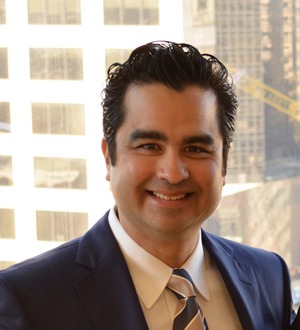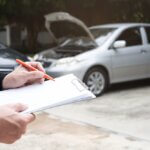
Partner at AKD Lawyers
Practice Areas: Personal Injury

New Orleans nightlife is famous worldwide, but once the music ends and the bars close, the city’s streets can become dangerous. Between the French Quarter, Canal Street, and Bourbon Street, traffic congestion, impaired driving, and low visibility often collide to create serious risks. Whether you’re a local driver or a tourist, understanding how these factors affect liability is key.
If you’ve ever wondered how late-night conditions shape car accident cases, this guide breaks down what happens when visibility, alcohol, and responsibility mix on New Orleans roads. For anyone seeking clarity, even a New Orleans car accident lawyer would agree that awareness and timing make a big difference when it comes to safety and accountability.
Why Nighttime Driving Is Riskier in New Orleans
Driving through the city’s nightlife zones feels different after dark. The mix of street crowds, neon lights, and limited visibility can confuse even experienced drivers. Pedestrians often cross outside designated areas, and rideshare vehicles frequently stop in traffic lanes for pickups or drop-offs.
Alcohol and fatigue also play a major role in nighttime crashes. People leaving clubs or working late shifts are more likely to be distracted or tired. Tourists unfamiliar with the area may misjudge street layouts or drive slower in busy zones, increasing the chance of rear-end collisions.
According to the National Safety Council, about 61% of urban traffic fatalities occur at night, showing just how serious late-night conditions can be.
Local reports also suggest that while overall accident rates may have declined, crashes in entertainment areas remain consistently high.
Key Factors That Influence Liability After Dark
Liability in nighttime accidents is rarely straightforward. Under Louisiana law, multiple parties can share responsibility for a single collision, depending on the situation.
- Drivers may be liable if they were impaired, distracted by a phone, or driving drowsy.
- Municipal authorities might share fault if broken streetlights or poorly marked crosswalks contributed.
- Event organizers or businesses could be at fault if valet setups or barriers made driving unsafe.
Rideshare companies like Uber and Lyft also come into play. When accidents happen during peak nightlife hours, determining whether a driver was “on the app” or off-duty can affect liability.
This shared responsibility becomes even more complex under Louisiana’s comparative fault laws, which are changing soon.

The Role of Louisiana’s Comparative Fault Rule
Louisiana currently follows a pure comparative fault system, meaning even if a driver is mostly responsible for a crash, they can still recover damages though reduced by their percentage of fault.
However, this will change on January 1, 2026, when the state shifts to a modified 51% rule. After this date, anyone found more than 50% at fault will no longer be eligible for compensation.
Beginning January 1, 2026, Louisiana will move from pure comparative fault to a modified 51% rule. Plaintiffs found more than 50% at fault will be barred from recovery.
This change will significantly affect nightlife accident cases where several people may share blame, such as impaired drivers, pedestrians, or rideshare operators.
Table: Key Louisiana Laws Affecting Nighttime Car Accident Liability
|
Legal Concept |
Current Rule (2024) | Change/Exception |
Why It Matters |
| Comparative Fault | Pure comparative (recover even if 99% at fault) | Shifts to 51% bar Jan 1, 2026 | Determines shared-fault compensation |
| Statute of Limitations | 1 year (before July 1, 2024) | 2 years (after July 1, 2024) | Impacts filing timeline |
| Dram Shop Law | Immunity for serving adults | Liability if alcohol served to minors/forced | Defines bar responsibility |
| No Pay, No Play | Limits recovery for uninsured drivers | No change | Affects compensation eligibility |
How Louisiana’s Dram Shop Law Applies to Nightlife Accidents
Alcohol is part of New Orleans culture, but it also complicates liability. Many people assume bars or restaurants are automatically responsible when a drunk driver causes a crash, but Louisiana law says otherwise.
Bars and restaurants are generally immune from liability when serving adults but may be held liable for serving minors or forcing alcohol consumption.
Under this law, most establishments are protected if they serve alcohol to adults who later caused accidents. However, they can face penalties if they knowingly serve minors or force someone to drink. In nightlife districts like Bourbon Street, where minors sometimes gain entry, this exception becomes significant.
61% of urban traffic fatalities occur at night, showing the heightened risk of late-night driving.

Evidence That Helps Clarify Nightlife Accident Cases
Collecting reliable evidence after a nightlife accident is critical. These incidents often occur near surveillance cameras, bars, or rideshare pickup zones, making digital evidence especially valuable.
Useful forms of evidence include:
- Video footage from nearby businesses or street cameras.
- Rideshare trip records confirming pickup and drop-off details.
Lighting maintenance reports, witness statements, and even receipts from nearby establishments can help establish the timeline of events. Police bodycam footage may also show important environmental factors, such as lighting or traffic flow.
Every piece of evidence matters because liability depends on how actions and conditions interacted, not just who was behind the wheel.
Understanding Louisiana’s Legal Deadlines and Exceptions
Timing plays a key role in Louisiana accident cases.
Statute of Limitations (Effective July 1, 2024): The filing deadline for Louisiana car accident cases is now two years instead of one for accidents occurring after July 1, 2024.
Before July 2024, injured parties had only one year to file a claim. Now, the extended deadline gives victims more time to act, but only for recent accidents.
Another crucial rule is Louisiana’s No Pay, No Play Law (La. R.S. 32:866). This law restricts recovery for uninsured drivers, even if they weren’t primarily at fault. It’s particularly relevant in nightlife zones, where uninsured or underinsured drivers are more common.
Understanding these timelines ensures that individuals know their rights before evidence fades or witnesses forget key details.
FAQs
Why are car accidents more common at night in New Orleans?
Reduced lighting, fatigue, alcohol, and crowded nightlife streets make crashes more likely in entertainment areas.
Can a bar be held responsible if someone causes a crash after drinking there?
Only if they served alcohol to minors or forced someone to drink, as defined by Louisiana’s Dram Shop Law.
How does comparative fault work in Louisiana?
Currently, victims can recover even if mostly at fault, but starting in 2026, recovery ends if over 50% responsible.
What kind of evidence helps prove liability in a late-night crash?
Surveillance videos, rideshare data, lighting reports, and witness statements can establish responsibility.
What is the statute of limitations for Louisiana car accident claims?
Two years for accidents after July 1, 2024; one year for those before that date.
Are uninsured drivers treated differently after an accident?
Yes. Louisiana’s No Pay, No Play law limits compensation for uninsured motorists.
Conclusion
New Orleans’ nightlife offers excitement but also unique risks for drivers and pedestrians. Reduced visibility, alcohol use, and crowded streets make late-night accidents a serious issue. Understanding how liability works, from comparative fault changes to dram shop exceptions, helps everyone navigate the city more safely.
When accidents do occur, knowing Louisiana’s updated laws and evidence rules is essential. If you or someone you know was involved in a late-night crash, Alvendia, Kelly & Demarest Law Firm can help you understand your options and guide you through Louisiana’s legal process.
Reach out today to schedule a free consultation and learn how experienced attorneys can help you move forward with clarity and confidence.
Categories

In 2003, after being dissatisfied with the quality of legal care for victims of car accidents, Roderick ‘Rico’ Alvendia sought to establish a new firm focused on providing high-quality legal services to aid injured victims and their families. J. Bart Kelly, sharing Rico’s passion for upholding justice, joined the firm later that year, and established a partnership.






